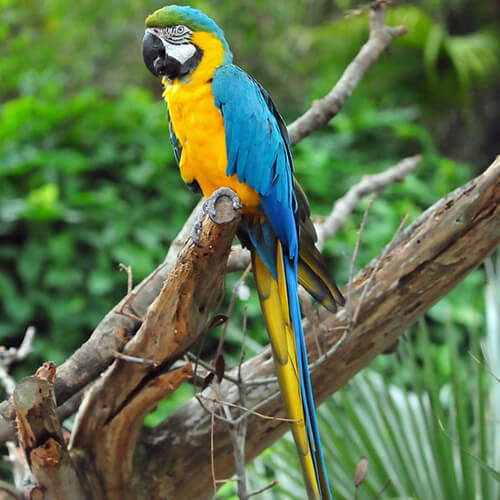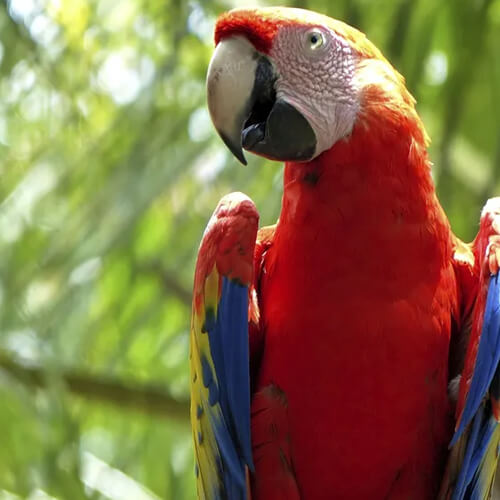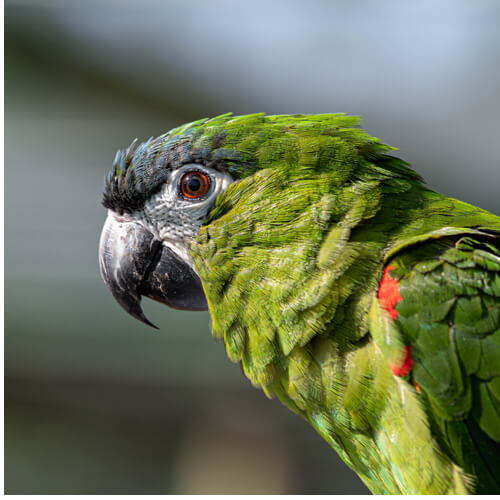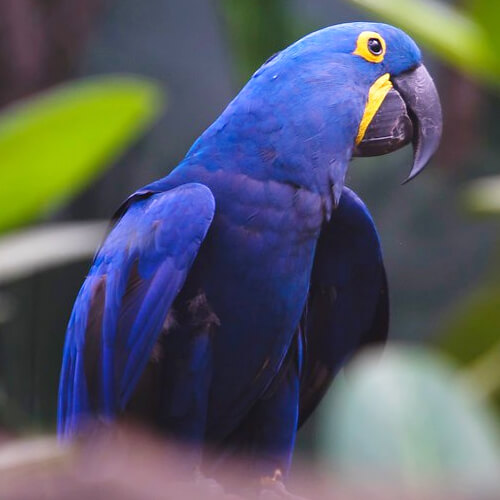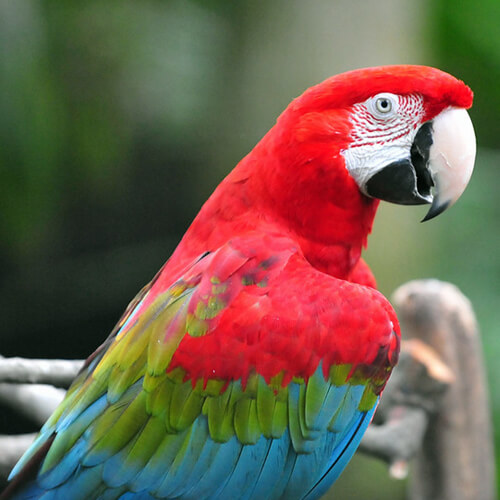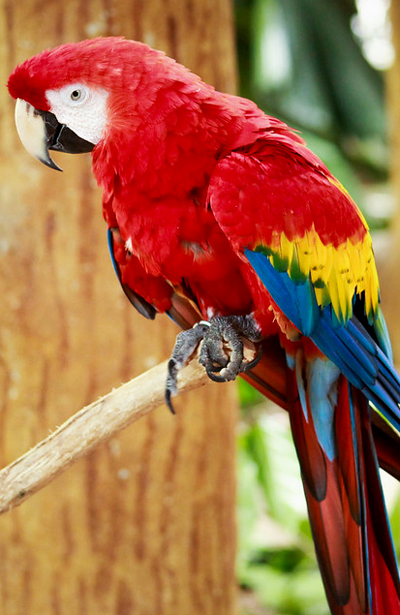
Get Detailed Information on Macaws- Macaw Temperament, Diet, Health, Care & More
Macaws are the most colorful members of the bird family. They are appropriately called winged rainbows - possessing powerful large beaks and long tails. They are considered the largest birds among the Parrots, in length and wingspan. The birds flaunt a unique blend of beauty, intelligence, inquisitiveness and other engaging traits that is almost legendary.
Sign-up for the Free Course on Macaw Training
Size: 20 - 42 inches
Life Expectancy: 30 - 80 years
Description
Large, dark (usually black) beaks, and relatively hairless, light colored, medial facial (facial patch) areas distinguish macaws. Sometimes the facial patch is smaller in some species, and limited to a yellow patch around the eyes and a second patch near the base of the beak in the members of the Hyacinth Macaw. It has been documented that a Macaw's facial feathers are unique as a human fingerprint. They are typically brightly colored and long tails.

